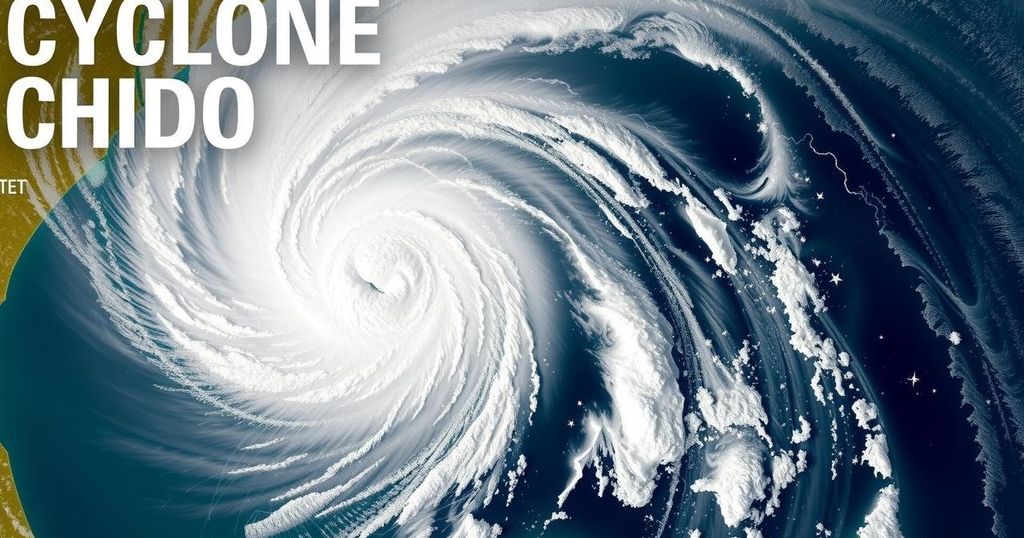Tropical Cyclone Chido Strikes Mozambique: Overview of Impacts and Response Measures

Tropical Cyclone Chido hit Cabo Delgado, Mozambique, on December 15, 2024, affecting about 2 million people. Urgent measures are underway to provide assistance, including early warnings and food support from WFP, focusing on the most impacted districts. Multi-sector assessments are planned to gauge the full extent of the cyclone’s impact on local communities.
On December 15, 2024, Tropical Cyclone Chido made landfall in the Mecufi district of Cabo Delgado province, presenting a severe risk to the region. Approximately 2 million individuals have been identified as vulnerable, with 627,000 considered at high risk and an additional 1.4 million facing moderate risk. The cyclone poses a grave threat to vital infrastructures, including river basins, roads, and health services, necessitating urgent preparedness measures and responsive actions from local authorities and humanitarian organizations.
The districts most exposed to the cyclone’s impact comprise Mecufi, Chiure, Metuge, Pemba, Namuno, Montepuez, and Ancuabe in Cabo Delgado, along with Memba, Nacaroa, and Erati in Nampula province. To mitigate potential devastation, early warning messages and evacuation instructions were disseminated across affected areas starting December 8 in Nampula and December 12 in Pemba, effectively reaching over 400,000 individuals as part of the activation of the Anticipatory Action Plan.
In addition to emergency warnings, the World Food Programme (WFP) has promptly delivered food assistance to support approximately 500 families affected by the cyclone, temporarily sheltered in accommodation centers within Pemba. Similar assistance has been provided in Nampula’s Mogincual area, where WFP, in collaboration with INGD, has facilitated food provision for displaced individuals. Furthermore, multi-sectoral assessments are being planned for the Mecufi and Chiure districts in order to extensively evaluate the cyclone’s impact and determine further humanitarian needs.
Tropical cyclones frequently threaten coastal regions, particularly in Africa, due to their vulnerability to severe weather conditions. Mozambique, situated along the southeastern coast of Africa, regularly experiences cyclones, prompting the government and humanitarian organizations to establish preparedness protocols. The WFP is actively involved in disaster response and food security interventions, providing critical humanitarian aid to those affected by climatic disasters. The recent arrival of Cyclone Chido underscores the ongoing risks faced by communities due to climate-related events, highlighting the importance of rapid response systems and coordinated action amongst local and international agencies.
This report underscores the significant risks posed by Tropical Cyclone Chido to millions in Mozambique, particularly in Cabo Delgado and Nampula provinces. The proactive measures taken to disseminate early warnings and facilitate evacuations illustrate essential steps in disaster preparedness. Emergency food assistance efforts by the WFP further demonstrate a commitment to addressing immediate humanitarian needs in the aftermath of the cyclone, ensuring that affected populations receive necessary support during this critical period.
Original Source: reliefweb.int








